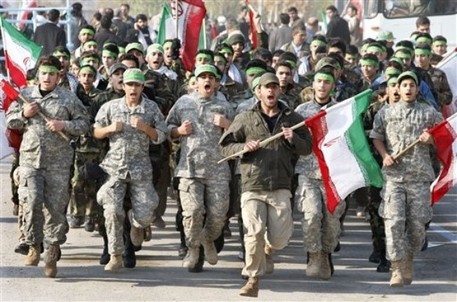
Patrick Clawson of the Washington Institute for Near East Policy writes:
In Iran, discontent over the economic situation, restrictions on social and cultural life, and corruption and favoritism are much more on the minds of ordinary Iranians than the nuclear issue. Indeed, there is little reason to think that ordinary Iranians care very much at allabout the nuclear issue. As for Iranâ??s leaders, they have a long record of caring first and foremost about holding on to power. Faced with an opposition that they perceiveâ??correctly or notâ??is a mortal threat to their grip on power, they base their decisions on all issues, foreign and domestic, on what they think will best reduce that threat. One analyst even claims that Iran has no foreign policy; instead, its domestic political disputes periodically affect how it acts toward the rest of the world.
This shouldn't come as much of a surprise, as foreign policy is often a reflection of the domestic priorities or environment in a given country. This is especially true however in Iran, where the use of conflict abroad has been used as a purging mechanism at home on several occasions.
This brings me back to an exchange I had with Daniel Larison and Andrew Sullivan over the linkage between the Green Movement and the nuclear weapons program. These issues are not mutually exclusive in Iran, and the more radical and militant elements within the regime want nuclear weapons, as Clawson goes on to explain, in order to fend off any kind of western invasion or alleged meddling in Iran's domestic matters.
This is why North Korea can kill and suppress its own dissidents with hardly a word form the international community, and it's also why any form of condemnation is considered a big deal when a relevant actor actually does says something. It's the same reason the Burmese junta would logically pursue such weapons in defiance of international dictates. Nuclear armed nations are simply treated differently on the global stage. Their possession of nuclear know-how alone makes them an automatic proliferation threat, and so it becomes imperative to contain their activity abroad and worry about their domestic wrongs later. But later rarely seems to come in the case of North Korea, and it may never come for Iran's reformists should the regime acquire nuclear arms.
(AP Photo)











